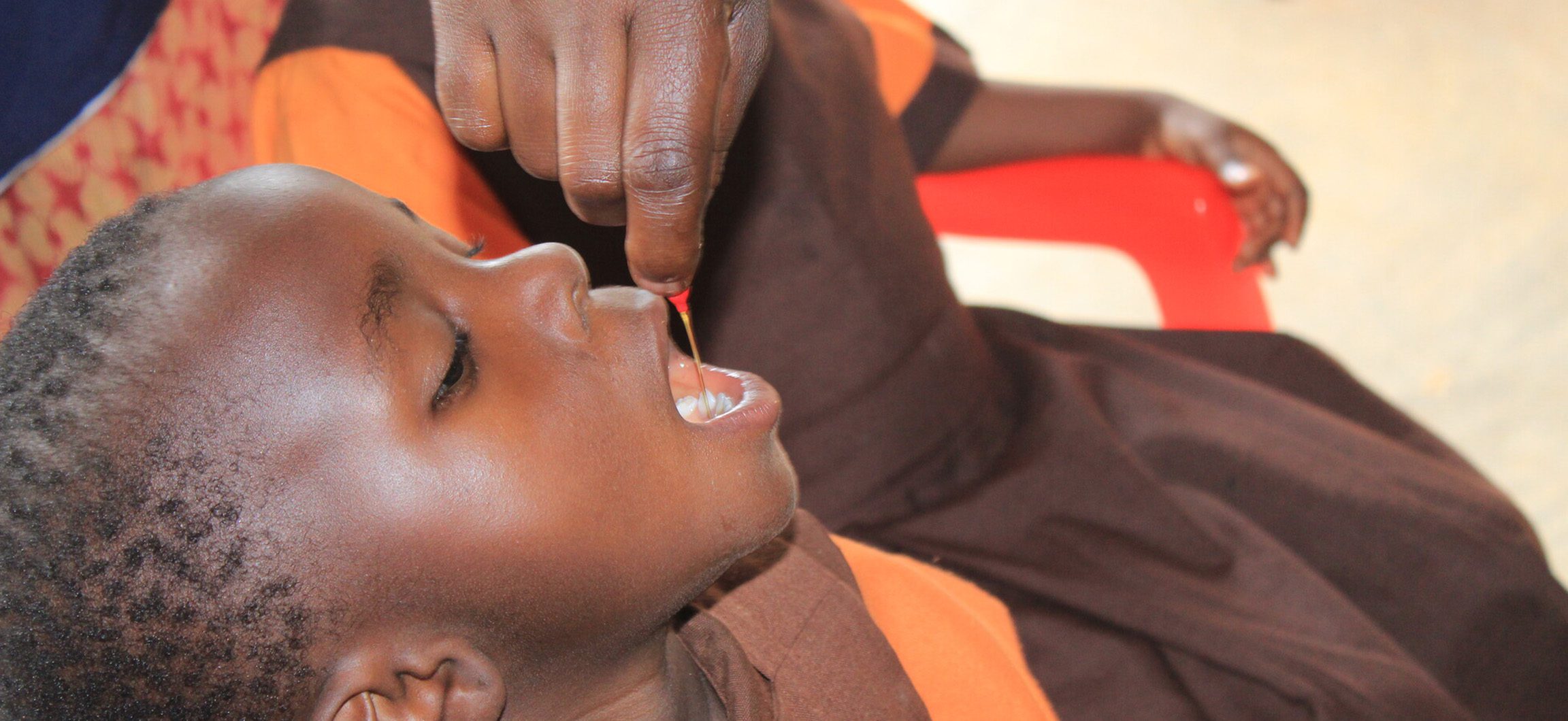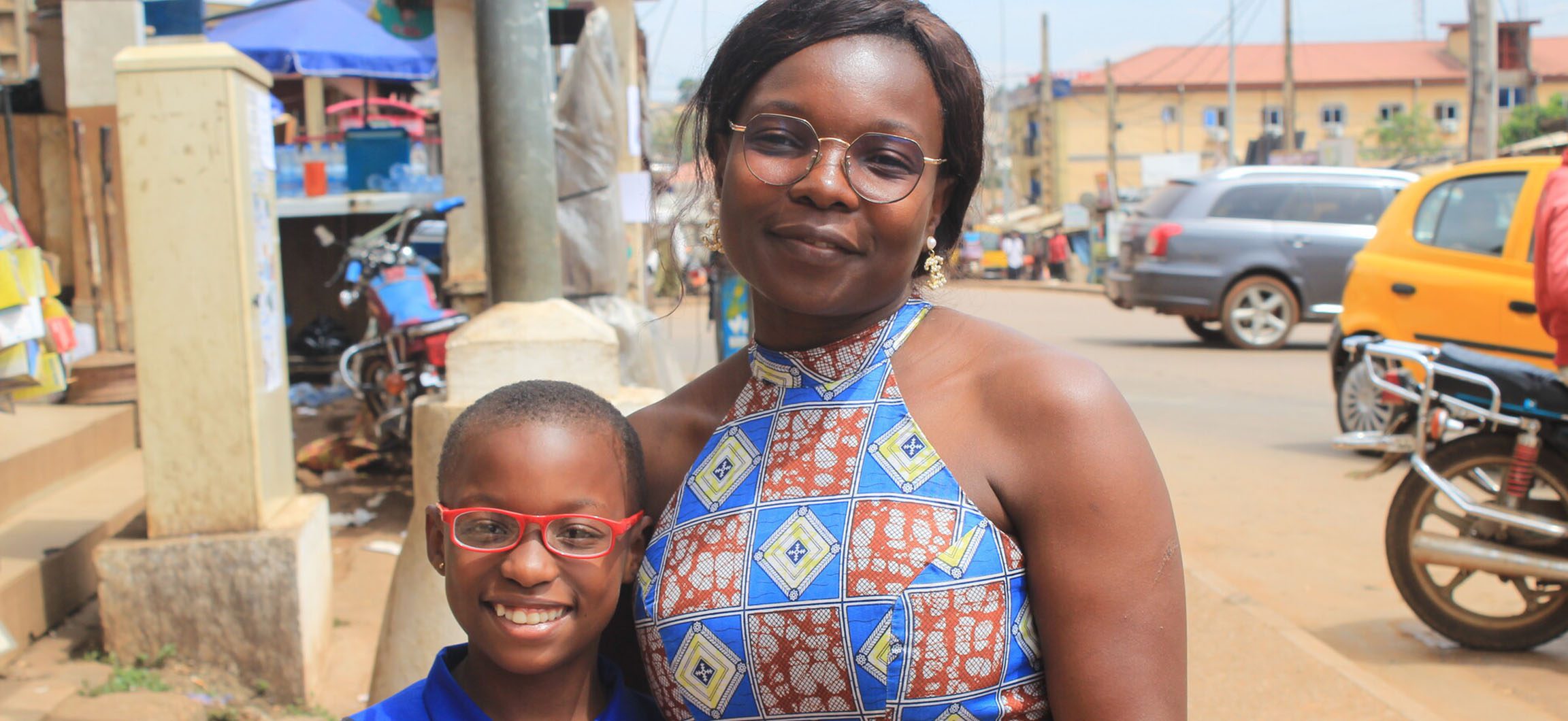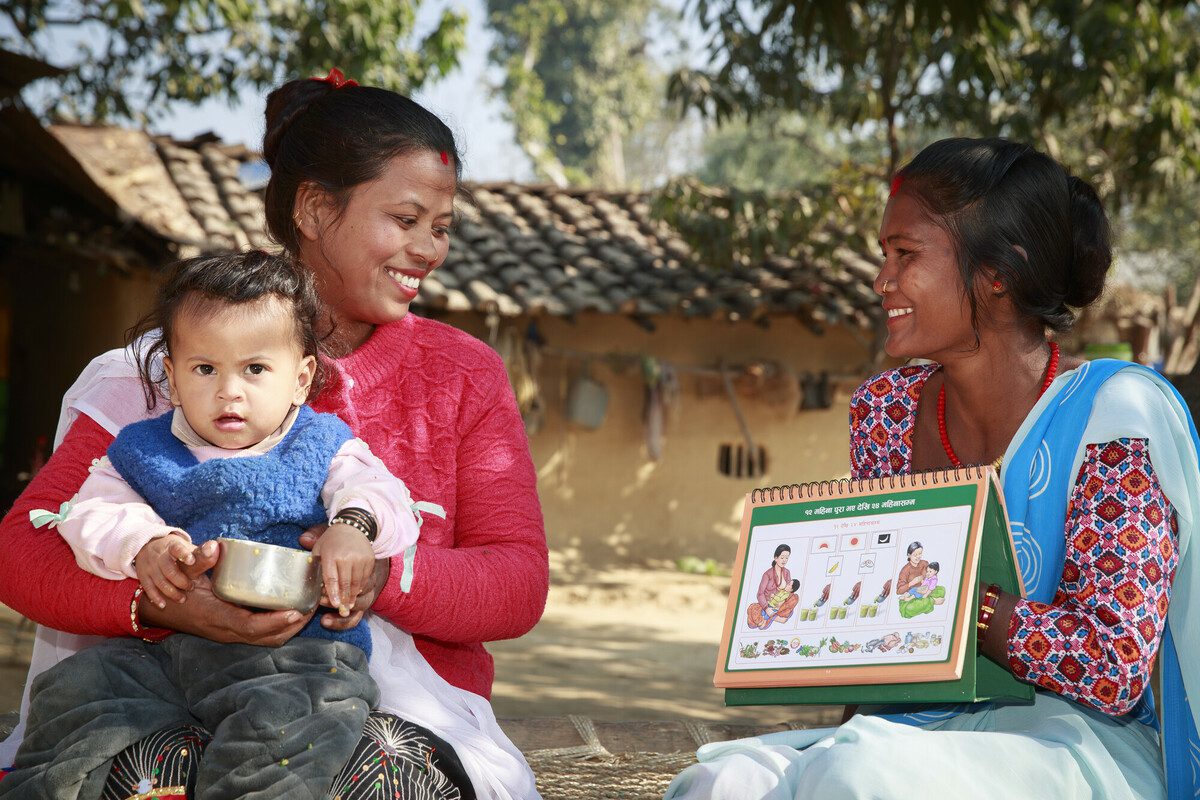3 Things to be Optimistic about in 2023
Optimism is the faith that leads to achievement. Nothing can be done without hope and confidence.
Helen Keller
Just like Helen Keller herself, many of the families Helen Keller Intl works with face staggering odds that can seem insurmountable – from food insecurity to climate crises to violent conflicts. Yet, despite these challenges, it is inspiring how they still retain hope, faith, and determination. Our staff around the world partners with these children, families, and communities to help reduce barriers and together, help create a better world and continuing to move forward no matter the obstacles.
As we begin a new year, there is much progress to celebrate, and we encourage you to join us as we take the side of optimism. Here are some encouraging developments in nutrition, health, and vision that we’re driving forward in 2023:
Our vitamin A work is growing exponentially

Vitamin A is critical to helping children grow up strong. It strengthens vision, prevents blindness, and builds immune systems so children can weather illness and disease. A simple twice-yearly vitamin A supplantation, given to children under the age of five can reduce childhood mortality by more than 25%.
Helen Keller has been at the forefront of vitamin A treatment for nearly 3 decades, currently working across 12 countries in Africa. To ensure children and families get enough vitamin A, we distribute supplements, through door-to-door campaigns and work with governments to integrate vitamin A supplementation into well visits at community health centers. We also partner with women to help them grow their own gardens, full of vitamin A-rich foods like carrots and sweet potatoes.
This year we’re excited to continue and expand our vitamin A work, thanks to the generous support of donors and investment by GiveWell. We’ve identified gaps in care in countries where we currently work, as well as large needs for vitamin A supplementation in Madagascar and look forward to expanding our work to a new country. Our research team is hard at work studying cost-effective delivery methods of vitamin A, helping us to continue to deliver mighty support in a micro package of just $1 a dose. This expansion will help us reach more kids in need – nearly 40 million children, nearly doubling the previous year’s reach.
We’re prioritizing glasses in Cameroon

In Africa, access to basic eye care is often highly limited, particularly for families living in poverty. Doctors specializing in vision care and optical shops are usually based in in cities, making access challenging for rural families. And even then, the expense is often more than a family can afford. These challenges are particularly pronounced in Cameroon, and as a result most students with refractive error are unable to obtain the eyeglasses they need to thrive and to achieve their full educational potential.
A little more than a year ago, Helen Keller launched a partnership between USAID’s Child Blindness Program, the Cameroon Ministry of Public Health, the Ministry of Secondary Education, and Acha Eye Hospitals to prioritize vision services to students within local schools. Teachers and nurses in schools are trained to carry out services and education parents and school children about the importance of vision services to encourage participation.
In the first year, we screened more than 20,000 students across 27 schools. Students with refractive errors were given no-cost prescription eyeglasses, donated from the Essilor Vision Foundation, and parents were counseled on how to take care of their children’s eyeglasses and ongoing eye health. This year we hope to continue and expand this work, with a goal of providing inclusive eye care to all students in Cameroon through a sustainable, scalable system of school-based eye health services.
We’re doubling down on efforts to restore eyesight in Tanzania

In Tanzania, we’ve been on the path to eliminate trachoma, a bacterial infection spread by flies and poor hygiene that causes the eyelashes to roll inward, scratching the surface the person’s eye. Early infections can be remedied by antibiotics, but if the disease progresses to its blinding stage called trachomatous trichiasis, surgery is needed. Without treatment, the person’s eyelashes could literally scratch their eyes blind.
Helen Keller works with the ministry of health to send trained healthcare workers and community volunteers door-to-door in six districts where trachoma and trachomatous trichiasis is most endemic, screening all members of the household over the age of 15. Reaching 90% of households, we realized we could combine blindness prevention efforts by screening for cataracts as well. Cataracts have no immediate cause other than old age. And while we cannot prevent people from getting cataracts, going without treatment will eventually lead to blindness.
By ensuring healthcare workers and community volunteers are also trained to detect cataracts, we can work efficiently, screen more people, earlier, getting them the surgery and treatment they need before it’s too late. Last year alone we visited more than 175,000 out of 335, 872 (52%) households and helping more than 1002 individuals get the trachomatous trichiasis and cataract surgeries they need to thrive across five regions.

Despite the challenges we face, we are taking the long view – supporting families with the right interventions when they need them most.









